Life As A Surfer
Surfing & Pollution: Interview With Surfrider Foundation
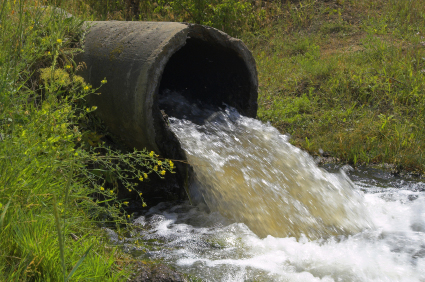
Each year the Surfrider Foundation encourages those who care about the oceans, beaches and waves to take action at the local level. Most people who enjoy our natural environment consider themselves stewards of nature. As a group, surfers can do more to help preserve Earth’s oceans. SurfScience spoke with Chad Nelson, the Surfrider Foundation’s Environmental Director, avid surfer, and hero to the environment to learn more about how we can actively preserve our beaches and, in the process, improve our surfing experience.
Rain, Runoff, and Flesh-Eating Bacteria
The Surfrider Foundation has four main areas of concern: clean water, beach access, beach preservation and protecting special places. The issue of clean water probably registers on a higher level for most surfers as we start receiving more winter rains. Nelson encourages surfers to avoid the surfing after it rains for at least 72 hours due to the urban runoff that gets dumped into our local beaches.
“After it rains we see the brown muck, but there are plenty of other days when those bacteria are high, but we don’t necessarily see it,” explains Nelson. “We call it the toxic cocktail. The number one source of pollution is land based pollution. While it’s flowing it picks up all sorts of heavy metals that come from cars and tires, bacteria from pet and human waste, gasoline and oil from cars, fertilizers and pesticides. All that stuff flushes down storm drains to the ocean.
“It can cause a whole range of illnesses. The most common is the classic gastrointestinal illness similar to Montezuma’s revenge from drinking bad water in Mexico. There are some people who have gotten a really nasty version of streptococcus, which they call flesh-eating bacteria. There is also exposure to toxins that don’t cause acute illnesses, but aren’t really good for you over time. You should stay out of the water for 72 hours largely because most of the bacteria that get washed out can’t survive longer than that.”
Other things you can do to help yourself is to avoid beaches that are notoriously dirty, such as the Newport Jetties in Newport Beach, California or Doheny State Beach in Dana Point, California. Beaches that don’t see a lot of runoff are the best ones to surf after a recent rain.
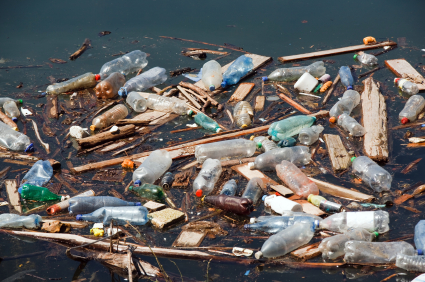
They Found Our Old Plastic
The Surfrider Foundation also focuses a great deal of attention on the alarming issue of plastics in our ocean waters. Their movement is called Rise Above Plastics and is aimed at creating awareness of this huge concern. Nelson told the story of why we should be concerned.
“We have a program called Rise Above Plastics because they’ve found an incredible patch of plastics In the middle of the Pacific Gyre, which is the center of the North Pacific Ocean. The swirling currents have collected this unbelievable mass of plastic. Billions and billions of pieces of plastic in the middle of the ocean. We’re starting to understand that everything we wash down storm drains and leave on the beach is having a global impact on the health of our oceans’ ecological systems.”
According to the Rise Above Plastics web site, in some areas of the gyre the amount of plastic particles outnumber plankton forty-six to one.
How You Can Help
“Our focus has been on single use plastics, like that plastic grocery bag you use for five minutes and then the thing is around forever,” says Nelson. “We’re all for encouraging new technologies to try to limit impacts. Constructing a surfboard really has a lot of impacts. Not so much on the ocean directly, because it’s mostly air quality and landfill disposal. They’re just not good for the environment as a whole. We’ve seen a lot of progress in using less toxic materials. I just heard about a new pine sap resin, for instance.”
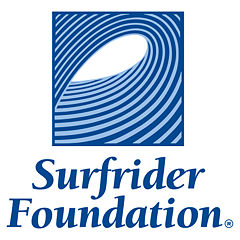
Nelson and the Surfrider Foundation encourage you to make conscious personal choices. You can visit various websites like Riseaboveplastics.com to educate yourself on ways to lower your plastic consumption and your use of single-use plastics. Nelson also encourages you to get active in your local community.
“Surfrider is a grass-roots organization. Our muscle is our volunteers. We have thousands of volunteers around the country and they are the people making the big difference. People power is an incredible thing. Most of all, we encourage people to tune in and find a way to plug into our mission of protecting our oceans, beaches and waves.
“Time after time after time, you see these little groups of motivated people get together and get organized and lead a successful campaign. It’s really amazing that activism works so well.”



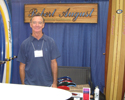


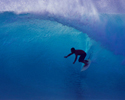
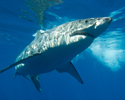
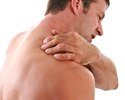
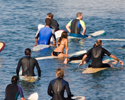
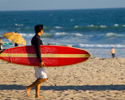
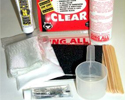



0 Comments